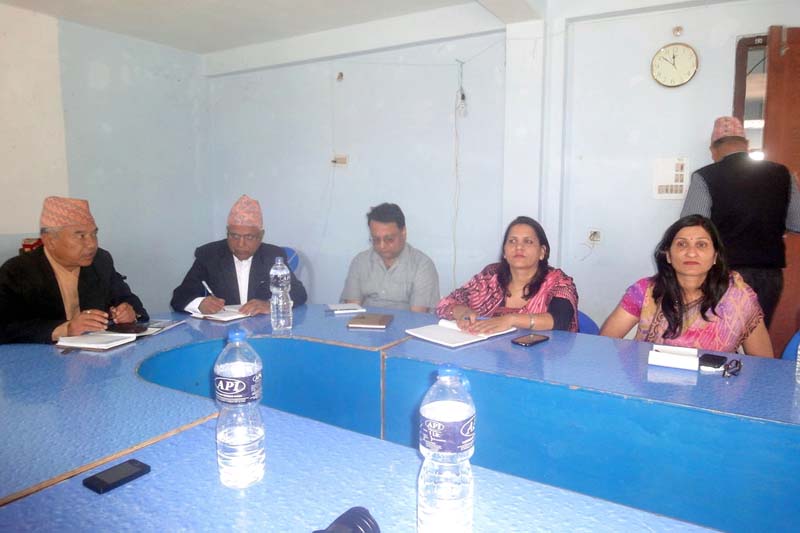AI, HRW call to extend mandates of TRC, CIEDP
Kathmandu, February 4
The mandates of the Truth and Reconciliation Commission and the Commission of Investigation on Enforced Disappeared Persons should be extended indefinitely to ensure that justice, accountability, and reparations are achieved for the thousands of victims of Nepal’s brutal insurgency, Human Rights Watch and Amnesty International said today.
According to them, the United Nations and donors, who played a major role in post-conflict peacemaking and rights protections, should publicly call on the government of Nepal to amend the law which created the commissions in line with international norms and extend their mandates.
“In spite of delays caused by political parties, the two commissions have succeeded in accumulating a body of evidence of wartime atrocities that can lead to justice, accountability, and reparations for survivors,” said Brad Adams, Asia director at Human Rights Watch in a joint press release issued from New York.
“The victims and their families who showed great courage to appear before the commissions expect the commissions to complete their work. It is time for Nepal’s political parties to prove their commitment to justice and truth,” he added.
The two commissions, whose mandates are set to expire on February 10, 2017, were set up as a result of the Comprehensive Peace Agreement of 2006 between the government of Nepal and then CPN-Maoist to address accountability for human rights violations that took place during Nepal’s 10-year civil war.
Nepal’s 1996-2006 armed conflict caused an estimated 13,000 deaths and thousands of disappearances. Credible allegations against both sides of the conflict reveal a pattern of torture, killings, enforced disappearances, and sexual violence. In spite of numerous calls for answers and accountability, the government has stalled on delivering justice to victims.
The commissions finally began receiving submissions in early 2016. By September 2016, together they had received nearly 60,000 complaints. Due to limitations on their mandate and persistent political and resource constraints, the commissions have been unable to complete their work. The CIEDP recently indicated that it will need a further three years to achieve its objectives.
Although the Ministry of Peace and Reconstruction has said that the mandates of the commissions mechanisms will be extended, there has been little concrete action to date. It is also unclear whether the TRC Act, which formally established the commissions, will be amended before the mandates are renewed in line with two separate Supreme Court rulings in 2014 and 2015, which found that the act did not conform to Nepal’s international legal obligations since it allowed for amnesties for crimes prohibited under international law.
In May 2016, the four main political parties agreed to a nine-point deal containing provisions shielding perpetrators of wartime abuses. Provision 7 directs the authorities to withdraw all wartime cases before the courts and to provide amnesty to alleged perpetrators.
“The Government of Nepal cannot continue to ignore the rights of victims to justice, truth, and reparation,” said Biraj Patnaik, South Asia director at Amnesty International. “Failure to amend the act as ordered by the Supreme Court and grant the commissions a reasonable extension of their mandates will squander the hope that victims have placed in this process,” he added.






